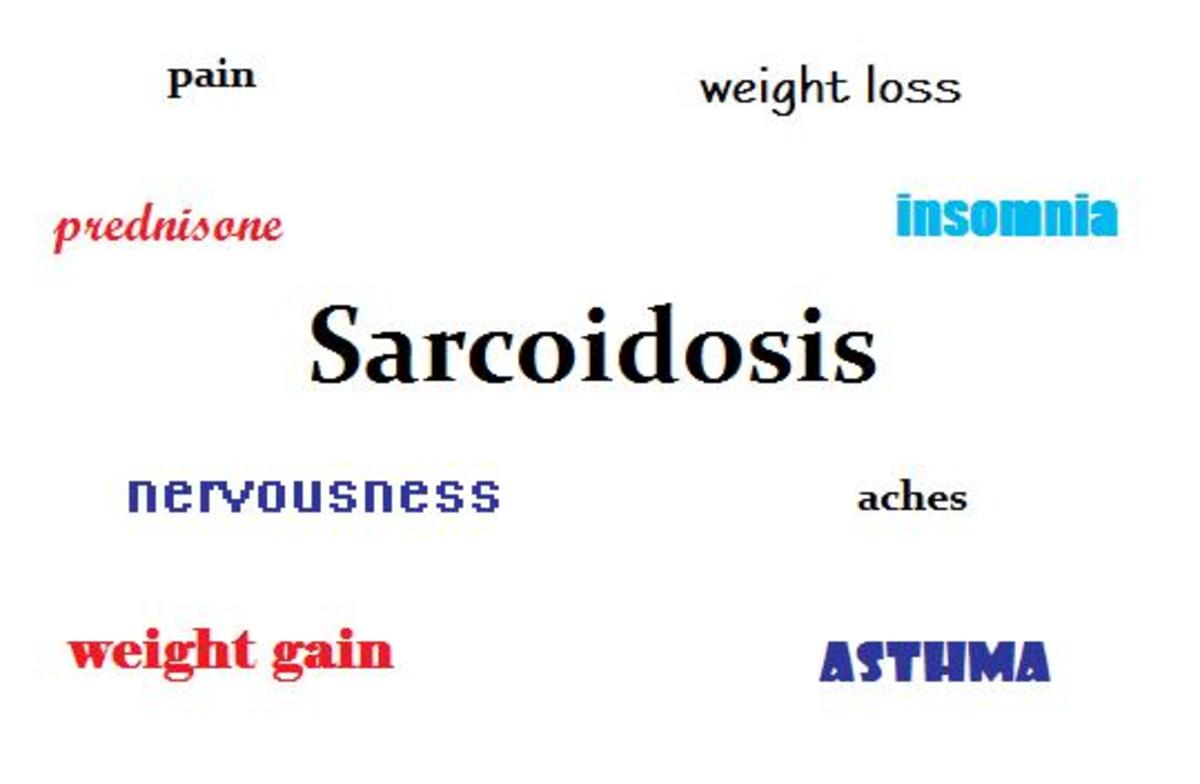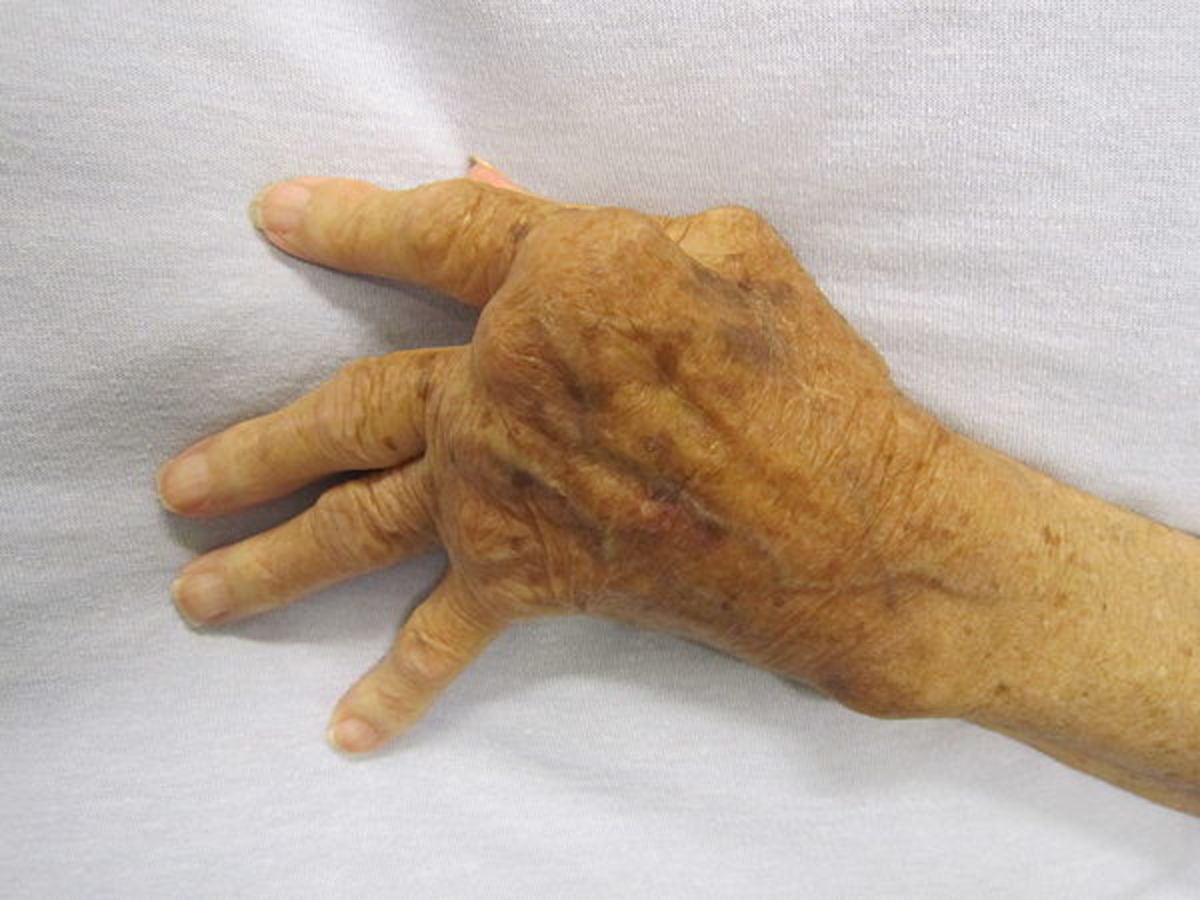Gluten May be a Contributing Factor to Autoimmune Diseases
Research evidence is showing that gluten from foods may be a contributing factor of autoimmune diseases in genetically susceptible individuals. The autoimmune disease that it results will vary from person to person. It could be Celiac disease, lupus, rheumatoid arthritis, type 1 diabetes, Latent Autoimmune Diabetes of Adults, Hashimoto’s thyroiditis, Grave's disease, and many others.
How can one substance gluten contribute to so many different types of autoimmune diseases. That is because that is there is a common initiating mechanism for why autoimmune diseases happens. Autoimmune diseases happen because there is an increased intestinal permeability (known as leaky gut). If an gluten-sensitive individual continues to consume gluten, it opens the "tight junctions" in the gut, letting protein and partially digested foodstuff through into the bloodstream when it should not be. Gluten is one such non-digestible protein that may cross this leaky gut barrier.
The immune system see these as foreign and launches an immune response. If they then consume gluten day in and day out over years and decades, eventually the immune system can become dysregulated and unable to distinguish accurately friend from foe.
That is why a person can be fine eating wheat (which contains gluten) when they are young and all of a sudden they develop gluten sensitivity during mid-life. There are instances of gluten sensitivities developing at the first few years of life and there instances when it develops when the person is in their 90's. It all depends on the genes, one particular level of sensitivity, and one's lifetime exposure to gluten.
You may hear news reports saying that autoimmune diseases in on the rise and is becoming epidemic. This may be because our wheat have been cross-bred such that they happen to contain more gluten than in that past. If not more, then at least different from what our ancestors had ate.
Autoimmune Disease is a Dysregulated Immune System
A dysregulated immune system then start attacking cells of own body rather than invaders. This is the hallmark of all autoimmune disease.
- Rheumatoid arthritis is when immune system attacks the joints.
- Celiac disease is when immune system attacks the small intestines.
- Hashimoto’s thyroiditis (hypothyroidism) and Graves’ disease (hyperthyroidism) is when immune system attacks that thyroid. 80% of thyroid issues may be autoimmune related.
- Type 1 diabetes is when immune system attacks the beta cells in the pancreas. This include LADA (latent adult-onset diabetes for adults)
- Lupus is when the immune system attacks the skin
- Multiple sclerosis is when the immune system attacks the myelin sheaths of nerves
Some consider allergies and eczema a mild form of autoimmune condition since it is a slight disregulation of the immune system being overly active.
Anyone with autoimmune diseases should be tested for gluten sensitivity, as well as other food sensitivity that can potentially do the same thing that gluten does.
Because there is a genetic component involved, anyone who is a first degree relative of someone with autoimmune disease should perform the same testing. Test should be repeated every several years as a particular sensitivity can develop any time in life, usually depending on when one loses "oral tolerance" due to lifetime exposure to a particular food substance. Gluten is one of the more common and well studied. Casein is another that comes very close.
Blood Test for Gluten Sensitivity
There are simple blood tests that can detect immune antibodies years prior to development of an autoimmune disease. And there are simple blood tests can detect if you are sensitive to certain particular food elements including gluten and other cross-reactive foods. Cyrex Labs is one such lab that can test for those by a qualified professional.
That is not to say that gluten causes all autoimmune diseases. There are other causes of autoimmune disease such as other environmental toxins and other possible causes. But since gluten sensitivity is so common and blood test is so simply, it is worth testing for. A person can have gluten sensitivity without any symptoms for years.
Many traditional doctors may not know this, because this was not known nor taught when they were in medical school back then. If you search and read the Internet, books, scientific articles on PubMed, you may know more than your doctor.
How Gluten Can Trigger Autoimmune Diseases
An good explanation of how gluten can cause leaky gut and trigger autoimmune conditions is the below video by Dr. Vikki Petersen, also co-author of The Gluten Effect.
Some main points in the video are ...
- Gluten can cause leaky gut that leads to autoimmunity in gluten sensitive individuals
- Stress can result in adrenal fatigue. And when that happens, the adrenals can not produce enough cortisol, which acts as a brake to the immune system and the immune system becomes overactive.
- There is a genetic component. Family members of gluten sensitive individuals are 5 times more likely to get autoimmune disease than the general population. It is believed that these family members are gluten sensitive and do not know it because they do not have digestive symptoms. Which is not surprising because less than one third of the time do gluten-sensitive individual have digestive complaints.
- The longer that a gluten-sensitive individual eat gluten, the more likely they are to develop autoimmune disease.
In short, for gluten sensitive individuals, gluten causes damages to the small intestines and causes a leaky gut. Although, there are other causes of leaky gut such as antibiotics, dairy, and possibly other.
Gluten intolerance and celiac disease are major contributing cause of leaky gut. Leaky gut is a contributing factor to autoimmune diseases. However, people do not need to have celiac or digestive symptoms to be gluten intolerant and be damaged by gluten.
The gluten protein then pass through the leaky gut in the bloodstream. When the immune system keep seeing these gluten come into the bloodstream meal after meal, it launches an immune response to attack the gluten. But if the gluten molecule attaches to other protein molecules or if other protein molecules looks similar to gluten, the immune system can make mistakes and attacks those other molecules as if they were gluten. Unfortunately, those other protein molecule may be joint proteins or proteins in other parts of your body. Hence, the immune system is now attacking part of your body.
Therefore, to reverse autoimmune disease, you have of course avoid the gluten trigger. But this is not enough, you have to heal the leaky gut as well as take care of other secondary effects.
Many of Dr. Petersen's points are reiterated her blog article which includes 5 most important steps to healing a leaky gut.
You Do Not Have to Have Celiac to be Gluten Sensitive
It is not necessary to have any digestive symptoms to be gluten-sensitive. In another video on the right, she says ...
"If you have an autoimmune disease, even if you don't have celiac disease, get yourself tested, find out if you are gluten sensitive and try that gluten-free diet. It could make a huge difference."
She cites a case where a woman had severe rheumatoid arthritis who do not have digestive disorder or celiac disease. But nevertheless, she was gluten sensitive and when she went on a gluten-free diet, her arthritis improved dramatically.
Some have estimated that anywhere from 10% to 20% and maybe even 30% of the population is gluten sensitive -- and most of them do not have digestive complaints and do not know that they are sensitive to gluten.
If you want to get tested for gluten sensitivity, Cyrex Labs is one that has some blood tests.
Anyone with Autoimmune Condition Should Avoid Gluten
Let me repeat this... Anyone with autoimmune condition should avoid gluten -- even if your test results are negative and shows that you don't have celiac. And even if your doctor says it is okay to eat wheat. This is because you can be sensitive to gluten without having celiac. But this gluten sensitivity can lead to other autoimmune diseases.
If you ask the experts that knows about gluten sensitivity, this is what they will say. For example, page 26 of The Immune System Recovery Plan by Dr. Susan Blum writes ...
"if you have any autoimmune disease -- not necessarily celiac disease -- it is good to do the tests above, but if they are negative, you should still remove gluten from your diet, based on research showing a connection between gluten and many other autoimmune diseases."









